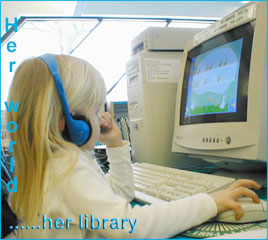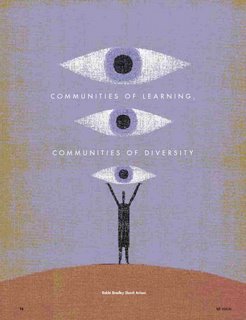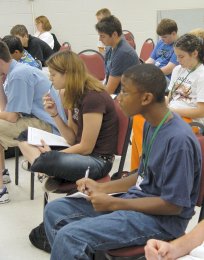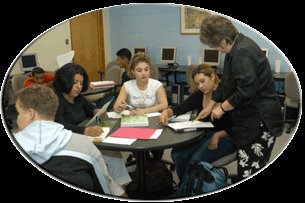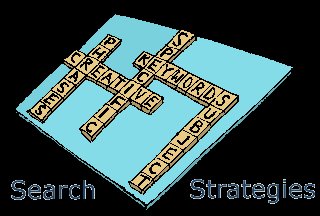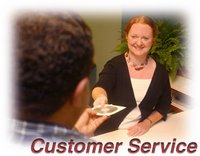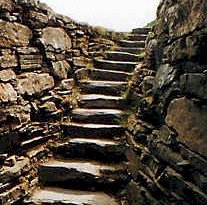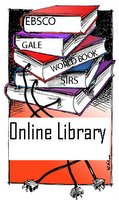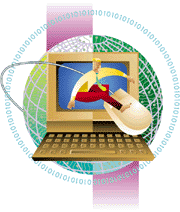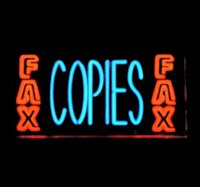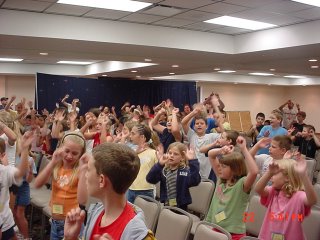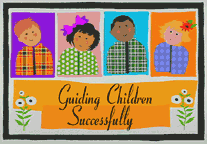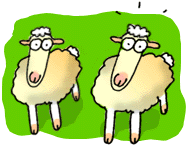 Title of the Topic:
Title of the Topic: “Information Literacy and Ethics Toolkit: Information Literacy and Ethics Resources for Middle and High School Students and Teachers”
*
Scope: The E-Pathfinder is designed to provide subject-based guides to resources on information literacy and information ethics. The E-Pathfinder resources include brief annotations, which are intended to inform teachers, to guide instruction, and to be used by middle and high school students. The E-Pathfinder topics include: academic honesty, assessment criteria, computer ethics, copyright and fair use, ethical codes, evaluation of information resources, information literacy standards, intellectual freedom and intellectual property, Internet research, the research process, piracy, social responsibility, and the responsible use of electronic communication tools. The E-Pathfinder is intended to guide teachers and secondary students to web-based tools that can be used to actively support critical thinking and the learning process across content areas, while engaging students in the constructive development of information literacy knowledge and skills.
Targeted Audience: Resources for middle and high school teachers and their students, concerning information literacy and ethical issues related to information resources and the access and use of information in a variety of formats. The purpose of the E-Pathfinder is to assist teachers in helping middle and high school students develop information literacy while becoming proficient and responsible users of information resources, information technology, and information systems.
E-Pathfinder Blog Resource: http://infoethicsandlit.blogspot.com/
The “Information Literacy and Ethics” blog is an ongoing project, which includes resources to relevant information organized in subject categories and indexed by keyword and topic.
E-Pathfinder Website Resource: http://rightuse.info/The “Information Literacy and Ethics” website is an ongoing project, providing a subject-based pathfinder to information resources organized by category.
Introduction:“Information Literacy and Ethics for Middle and High School Students and Teachers” provides a collaborative forum, information pathfinders, information literacy tutorials, evaluation tools, and selected web-based and print resources concerning ethical research practices and the ethical use of information in all formats.
Subjects:
Academic Dishonesty"Academic dishonesty is a form of cheating that occurs within an educational setting. It includes plagiarism and data falisfication. Plagiarism is claiming another's work as one's own. Data falsification includes making false claims about research performed, including selective reporting of results to exclude inconvenient data to generating bogus data."
Abundant Cheating
A Critical Campus Concern, Information EthicsAcademic Dishonesty
Definitions of Academic Dishonesty
Plagiarism
Legal Aspects of Academic Dishonesty
Assessing Information Literacy"Assessment is the process of documenting, usually in measurable terms, knowledge, skills, attitudes and beliefs."
Big6 Turbo ToolsTILT
Webquests and Information Literacy: A Collaborative, Active Approach to Learning
Critical Thinking"Critical thinking consists of a mental process of analyzing or evaluating information, particularly statements or propositions that people have offered as true. It forms a process of reflecting upon the meaning of statements, examining the offered evidence and reasoning, and forming judgments about the facts.
Critical thinkers can gather such information from observation, experience, reasoning, and/or communication. Critical thinking has its basis in intellectual values that go beyond subject-matter divisions and which include: clarity, accuracy, precision, evidence, thoroughness and fairness."
iReading + iWriting + iThinking + T/n = L3
Code of Ethics for Educators"In the context of an organization, a code of ethics is often a formal statement of the organization's values on certain ethical and social issues. Some set out general principles about an organization's beliefs on matters such as quality, employees or the environment. Others set out the procedures to be used in specific ethical situations - such as conflicts of interest or the acceptance of gifts, and delineate the procedures to determine whether a violation of the code of ethics occurred and, if so, what remedies should be imposed. The effectiveness of such codes of ethics depends on the extent to which to management supports them with sanctions and rewards."
A Blogger's Code of EthicsALA Code of EthicsCode of Information EthicsComputer Professionals for Social Responsibility
InfoLit Standards"A set of criteria linked to learning objectives that is used to assess a student's performance on a task, paper, project, essay, etc."
Information Literacy Standards for Student Learning
Information and Learning"Learning is the process of acquiring knowledge, skills, attitudes, or values, through study, experience, or teaching, that causes a change of behavior that is persistent, measurable, and specified or allows an individual to formulate a new mental construct or revise a prior mental construct (conceptual knowledge such as attitudes or values). It is a process that depends on experience and leads to long-term changes in behavior potential. Behavior potential describes the possible behavior of an individual (not actual behavior) in a given situation in order to achieve a goal. But potential is not enough; if individual learning is not periodically reinforced, it becomes shallower and shallower, and eventually is lost in that individual.
Instruction is a form of communicated information that is both command and explanation for how an action, behavior, method, or task is to be begun, completed, conducted, or executed."
3 Doors to InfoLiteracy
Information Literacy Readings
Information Literacy Forum
Information Literacy Links
Information Literacy Portals
Information Literacy Tools
Information Ethics"
Information ethics is a field that applies ethical principles within the context of information provision, control, and use. This field considers issues concerning all aspects of "information technology and information systems for personal, professional, and public decision-making (Elrod & Smith, 2005)" by providing a critical framework for considering issues related to information creation, ownership, acquistion, access, and retrieval. Information ethics establishes criteria for evaluating policies and decisions regarding information products, delivery, and systems."
Applied Ethics Resources on WWW
Information Ethics Problem of the MonthInformation Ethics TutorialNational Forum on Information Literacy
Open Directory: Computers, Ethics
Resources on Computer and Ethics
Ten Commandments Of Computer Ethics
Information Literacy and Learning"Information literacy is rooted in the concepts of library instruction and bibliographic instruction, is the ability "to recognize when information is needed and have the ability to locate, evaluate and use effectively the needed information" (
Information Power, p. 1). In this view, information literacy is the basis for life-long learning, and an information literate person is one who:
* recognizes that accurate and complete information is the basis for intelligent decision making
* recognizes the need for information
* knows how to locate needed information
* formulates questions based on information needs
* identifies potential sources of information
* develops successful search strategies
* accesses sources of information including computer-based and other technologies
* evaluates information no matter what the source
* organizes information for practical application
* integrates new information into an existing body of knowledge
* uses information in critical thinking and problem solving (Doyle, 1992)
* uses information ethically and legally
Since information may be presented in a number of formats, the term information applies to more than just the printed word. Other literacies such as visual, media, computer, network, and basic literacies are implicit in information literacy."
About Information LiteracyACRL Information LiteracyInformation LiteracyInformation Literacy and Access to ResourcesInformation Literacy Weblog
Information Literacy Models"Because information literacy skills are vital to future success:
* Information literacy skills must be taught in the context of the overall process.
* Instruction in information literacy skills must be integrated into the curriculum and reinforced both within and outside of the educational setting.
"The Seven Pillars of Information Literacy" ModelWhat is information literacy?Information Literacy Skills"Educational reform and restructuring make information literacy skills a necessity as students seek to construct their own knowledge and create their own understandings.
Educators are selecting various forms of resource-based learning (authentic learning, problem-based learning and work-based learning) to help students focus on the process and to help students learn from the content. Information literacy skills are necessary components of each.
The process approach to education is requiring new forms of student assessment. Students demonstrate their skills, assess their own learning, and evaluate the processes by which this learning has been achieved by preparing portfolios, learning and research logs, and using rubrics."
Lessons for developing skills in the areas of:
Questioning Identifying & Collecting
Evaluating
Sensemaking
Reflecting & Refining Using
Assessing21st Century
Information Fluency Project
Intellectual FreedomThe concept '
intellectual freedom' is based on "...the inalienable rights of a person to use ideas--the freedom to use one's mind. Intellectual Freedom is the right to own the ideas that you possess and it is the right to use your ideas in conjunction with your physical property in any way you wish. It is the right to be free from claims of illegally possessing or using ideas. It is the recognition that to call ideas that one person possesses the property of another is analogous to calling one person the property of another."
Intellectual Freedom is the inalienable right of all humanity to take part in the use of expressions; of inventions; of ideas. Intellectual freedom is defined as "...the inalienable rights of a person to use ideas--the freedom to use one's mind. Intellectual Freedom is the right to own the ideas that you possess and it is the right to use your ideas in conjunction with your physical property in any way you wish. It is the right to be free from claims of illegally possessing or using ideas. It is the recognition that to call ideas that one person possesses the property of another is analogous to calling one person the property of another. Intellectual Freedom is the inalienable right of all humanity to take part in the use of expressions; of inventions; of ideas."
ALA Intellectual Freedom Statements and PoliciesCensorship and Intellectual Freedom FAQsCensorship, the Internet, Intellectual Freedom, and YouthDemocracy and Intellectual Freedom
Intellectual Freedom and Censorship
Professional Guidelines
"Simulated Intellectual Freedom Debate"
Intellectual Property"Intellectual property refers to a legal entitlement which sometimes attaches to the expressed form of an idea, or to some other intangible subject matter. This legal entitlement generally enables its holder to exercise exclusive rights of use in relation to the subject matter of the intellectual property. The term intellectual property reflects the idea that this subject matter is the product of the mind or the intellect, and that IP rights may be protected at law in the same way as any other form of property."
Copyright and Fair Use
Copyright, Privacy, and Intellectual Property
Electronic Frontier Foundation: Intellectual Property
Intellectual PropertyithenticateResearch Resources
TurnitinUnderstanding Copyrights
What Is Plagiarism?
Internet EthicsThe core issues of Internet ethics "include, but are not limited to: professional responsibility, intellectual property rights, privacy, and the impact of technology in society." An issue that goes hand in hand with Internet ethics is social responsibility. Social responsibility is an obligation for Internet information producers and users to create and use information in an ethically and socially responsible manner.
Applied Ethics Resources on WWW
The Berkman Center for Internet and Society at Harvard Law School
Computer LiteracyComputer Professionals for Social ResponsibilityA Critical Campus Concern, Information Ethics
Internet Research EthicsThe Internet, Ethics, Plagiarism, and AUPs
Internet Ethics: Oxymoron or Orthodoxy?An Online Interactive Course in Internet Ethics
Resources on Computer and EthicsTeaching Internet Ethics to TeensOpen Courseware"Freeware is computer software which is made available free of charge, as opposed to payware where the user is required to pay." Open courseware facilitates free and open access to information programs and services.
Models for Sustainable Open Educational Resources
Open Directory ProjectPiracy"Copyright infringement is the unauthorized use of copyrighted material in a manner that violates one of the copyright owner's exclusive rights, such as the right to reproduce or perform the copyrighted work, or to make derivative works that build upon it. The slang term bootleg (derived from the use of the shank of a boot for the purposes of smuggling) is often used to describe illicitly copied material."
Anti-Piracy
The Free Software Foundation
Software Piracy
Types of Piracy
Website Evaluation"A website (or web site) is a collection of Web pages, typically common to a particular domain name or sub-domain on the World Wide Web on the Internet.
To date, there are nearly 80 million websites in the world with registered domains.
There are many varieties of websites, each specialising in a particular type of content or use.
Evaluation is the systematic determination of merit, worth, and significance of something or someone.
'Evaluation' is said to involve characterizations and appraisals – determinations of merit and/or worth. Merit involves judgments about generalized value. Worth involves judgments about instrumental value."
Website Evaluation CriteriaWebsite Evaluation Tutorial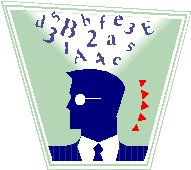
Print Reference Sources:American Association of School Libraries. (1998).
Information power: Building partnerships for learning (2nd ed.). Chicago, IL: American Library Association.
Birk, J. & Hunt, F. (2003).
Hands-on information literacy activities. New York: Neal-Schumann.
Brevik, P.S. (1998).
Student learning in the information age. Phoenix, AZ: Oryx Press.
Doyle, C.S. (1992). Outcome Measures for Information Literacy Within the National Education Goals of 1990. Final Report to National Forum on Information Literacy. Summary of Findings.
Eisenberg, M.B., Lowe, C.A., & Spitzer, K.L. (2004).
Essential skills for the information age (2nd ed.) . Westport, CT: Libraries Unlimited.
Harris, F. J. (2005).
I found it on the Internet: Coming of age online. Chicago, IL: American Library Association.
Hughes-Hassell, S. & Wheelock, A. (2001).
Information-powered school. Chicago, IL: American Library Association.
Lessig, L. (2002).
The future of ideas: The fate of the commons in a connected world. New York: Random House.
Loertscher, D.B., & Wools, B. (2002).
Information literacy: A review of the research. San Jose, CA: Hi Willow Publishing.
Riedling, A.M., & Eisenberg, M.B. (2002).
Learning to learn: A guide to becoming information literate. New York: Neal-Shumann.
Riedling, A.M. (2004).
Information literacy: What does it look like in the school library media center. Portsmouth, NH: Libraries Unlimited.
Simpson, C. (Ed.). (2003).
Ethics in school librarianship: A reader. Worthington, OH: Linworth.
Spinello, R.A., & Tavani, H.T. (2004).
Readings in cyberethics (2nd ed.). Boston, MA: Jones and Bartlett.
Tavani, H.T. (2004).
Ethics & technology: Ethical issues in an age of information and communication technology. Hoboken, NJ: John Wiley $ Sons.
Thomas, N.P. (2004).
Information literacy and information skills instruction: Applying research to practice in the school library media center. (2nd ed.)
Warlick, D.F. (2004).
Redefining literacy for the 21st century. Worthington, OH: Linworth.
Woodbury, M.C. (2003).
Computer and information ethics. Champaign, IL: Stipes.
 *NOTE
*NOTECreating and revising the E-pathfinder has been an ongoing and reflective process, involving evaluation, re-evaluation, and critical thinking in relation to topic, audience, and presentation strategies.
The topic of information literacy is intimately tied to information ethics. In order to develop information literacy knowledge and skills, students must appreciate information ethics and ethical practices in relation to information production, access, retrieval and use.
In order to effectively present the concept of information ethics in the context of information literacy to middle and high school students and teachers, it is necessary to identify resources that support conceptual understanding as well as constructive learning.
Limiting and categorizing subtopics, and arranging the categories alphabetically. simplifies searching via the E-pathfinder, and supports convenient identification of selected information resources by the intended audience.


